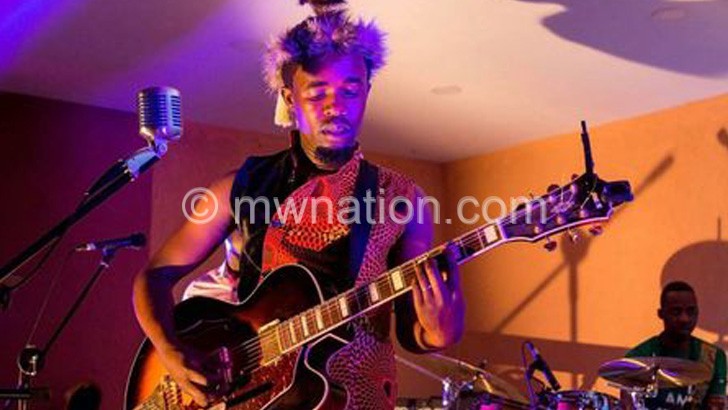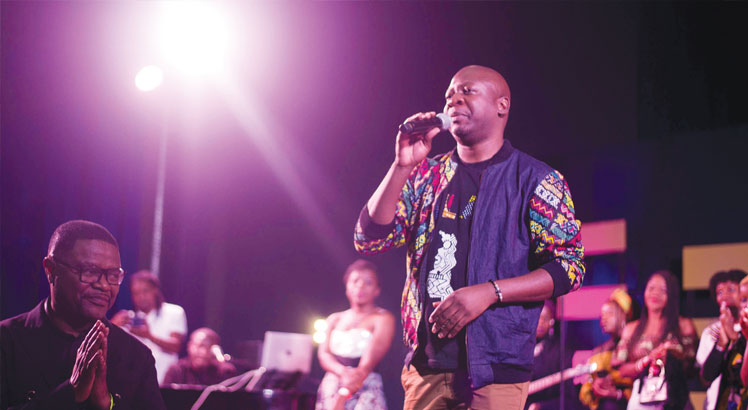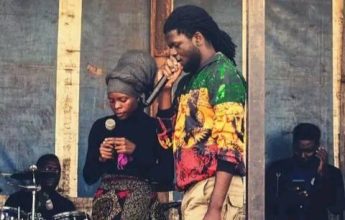Cultural dividend
Culture can be a dividend, or a benefit, in music production, writes staff reporter HOWARD MLOZI.
Faith Mussa’s recent song, Mdidi, best captures why culture is a critical dividend in music production. The harmony in Mdidi derives from the artist’s careful use of a traditional instrument called badza.

For using badza—an instrument which produces unique sound form mganda traditional dance—Mdidi earns itself a strong feature of identity.
Experts underline that identity is a key feature in music and, often, great musicians are products of defining their identity.
However, identity in Malawi’s music is still a big challenge.
You can tell that the song, to a greater extent, is an instrument of safeguarding, upholding and transmitting shared cultural ways of a particular people.
The song does attest that music can really be a powerful medium of upholding intangible cultural expressions, which represent a particular sect of people or their lifestyles.
There are many examples to attest how music has become essential in safeguarding cultures in many countries especially in the African continent.
Unlike Nigeria and Zimbabwe, some of the African countries whose music has grown tremendously for harnessing their cultural dividend, most artists in Malawi appear to be in a cultural identity crisis.
For instance, when you travel to South Africa, the feel of Kwaito on their radio stations and television screens is everywhere. So, too, is Pasada in Mozambique and Mbira in Zimbabwe.
A regular traveller on the Malawi-South Africa route, Daniel Chisoni, testified to this experience.
“The promotion of music in other countries such as Zimbabwe starts right with different radio stations which play the majority of music done by Zimbabweans. The same applies to Mozambique. You could barely listen to a song done by a Malawian when travelling.
“But the confusion creeps in once you enter Malawi because there is no sign which alerts visitors from our local radio stations. It’s all about American, Nigerian or Zambian music busting, which leaves people wondering whether our country is Nigeria-Malawi or America-Malawi,” wondered Chisoni, who is a resident of Chirimba Township in Blantyre.
Due to the thriving influence of Nigerian music on the African continent, it is becoming a norm for Malawian artists to imitate the Nigerian style of music.
But a music expert has challenged local artists to do better when it comes to creating music styles.
“Copying styles from other artists is like an illegal act of reaping where you did not sow. Those original creators put a lot of effort to stand out on the market, a spirit that most artists lack in our country,” observed Dr. Robert Chanunkha, a senior lecturer in music at Chancellor College.
He argued that copying from other countries or artists’ music styles undermines the value of Malawian culture.
“When Malawian artists force themselves to sound like Davido from Nigeria or R. Kelly from America it just shows that we are obsessed with foreign cultural values at the expense of our own. But the question is: who will tap from our traditions if we all want to sing like Busy Signal or 50 Cent?” wondered Chanunkha.
He urged local artists that it takes creativity and effort to come up with an influential product.
But as the talent of majority artists from Malawi is falling prey to foreign influences, some artists are striving to change the status quo by capitalising on traditional sounds, a cultural dividend, to create unique flavours of music.
Mussa’s Mdidi is only an example.
He has since told On the Arts that he has a core duty to represent his country both artistically and culturally.
“I mean these are the type of sounds that can make us stand out on the international scene. To me, it is the badza thing that can arouse the curiosity of listeners and make them like Malawi music more,” he said.
He said there are different types of traditional dances in Malawi such as beni, tchopa, gulewamkulu, chintali and manganje that artists can tap inspirations from and dazzle the world. But sadly, he noted, some artists take joy in copying from other people’s innovations.





